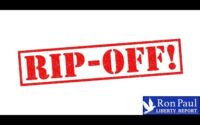St Louis Federal Reserve President James Bullard doesn’t think the U.S. central bank is attacking high inflation with enough urgency — risking both its credibility and the U.S. economic recovery.
The president of the St. Louis Federal Reserve was the lone “no” vote when the central bank raised a key U.S. interest rate on Wednesday for the first time in four years.
His gripe? The Fed should have gone even further. He wanted a half-point increase, with interest rates ending above 3% by year end.
Instead the bank lifted its benchmark short-term interest rate by just a quarter percentage point — from near zero to a range of 0.25% to 0.5%. The Fed also signaled that rates are likely to end up around 1.9% by the end of the year.
“The [Fed] will have to move quickly to address this situation or risk losing credibility on its inflation target,” Bullard said in a statement on Friday morning.
Bullard has warned for months that inflation was rising dangerously fast and that the Fed had to take action.
“We’re at more risk now than we’ve been in a generation that this could get out of control,” he said last month, even implying there was too much groupthink at the Fed.
The Fed in some ways signaled a more aggressive posture this week.
The bank forecast a steady series of rate hikes over the next two years and interest rates ending higher, at 2.8%, than Wall Street had expected.
These increases are expected to dampen consumer spending and business investment, slow a rapidly growing economy — and help bring down inflation.
It still wasn’t enough for Bullard. He said he worries the Fed might not be able to reduce inflation to pre-pandemic levels of 2% or less without speedier action.
The “unexpectedly high inflation means that the committee’s policy rate is currently far too low to prudently manage the U.S. macroeconomic situation,” he said.
“The burden of excessive inflation is particularly heavy for people with modest incomes and wealth and for those with limited ability to adjust to a rising cost of living.”
By moving too slowly, he said, the Fed could also jeopardize the economy. He pointed to aggressive rate hikes in mid-1990s by the Fed that nipped a rise in inflation in the bud while keeping the economy expanding.
“I think the committee should try to achieve a similar outcome in the current environment,” Bullard said.
Not only does he want a quicker increase in interest rates, he also favored “implementing a plan” to reduce the Fed’s $9 trillion balance sheet. The Fed on Wednesday said it would lay out details for selling off assets “at a coming meeting.”
The Fed bought trillions in Treasury bonds and securities composed of home mortgages during the pandemic to bring long-term rates down to historic lows to support economic growth.


